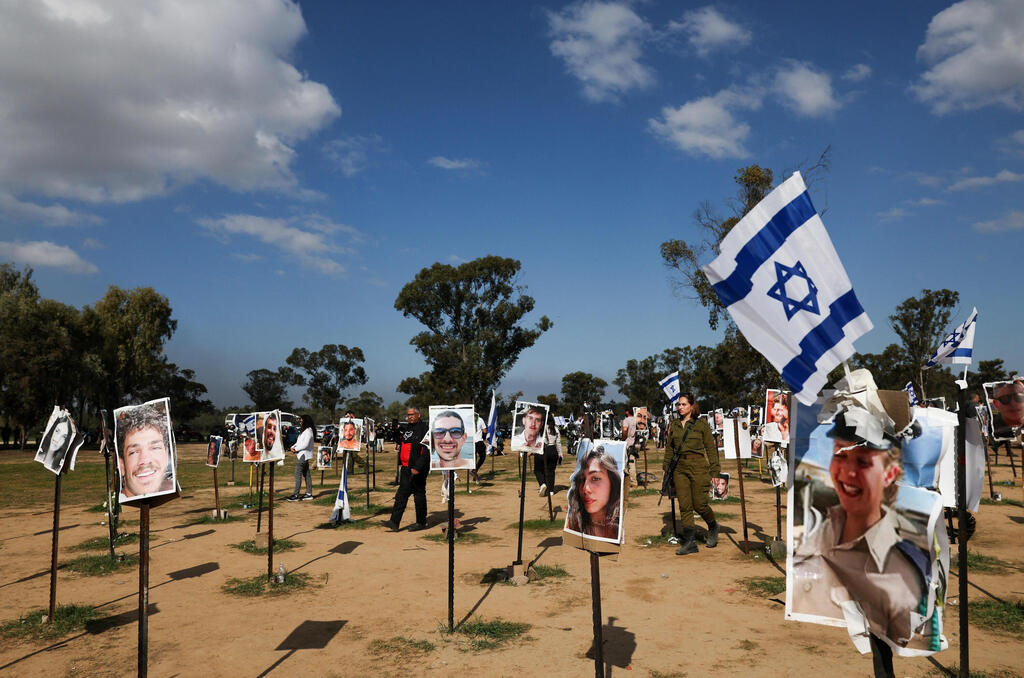
7.10
Governments come and go - Israeli tech is here to stay
In the year since Hamas’ October 7th attacks on Israel, while the state’s political leadership has failed and 101 hostages remain in captivity, the resilience of Israel’s high-tech industry and its people offers some glimmer of hope amid ongoing turmoil
One year has passed since the Hamas-led attacks which altered the fabric of life as we know it in this small spit of land. This terrible year has simultaneously felt glacial in pace, as though a century has elapsed rather than a mere twelve months, but also like it passed in the blink of an eye.
Most surreal of all is that this isn’t a memorial day that commemorates a past event, but an attack that is very much present and ongoing. One year since we watched as our neighbors, friends and family members were massacred and kidnapped in real-time amid the worst security failure in the nation’s history, which has since evolved into an unprecedented multi-front war. One year later, and no state commission of inquiry has been established, no modicum of responsibility taken by the political leadership who presided over this disaster, and, worst of all, 101 of our hostages remain languishing in captivity with no deal in sight.
In the endless catalog of failures this disastrous government has borne, the abandonment of the remaining hostages is the most unforgivable and it will surely be what cements this prime minister’s legacy; not his erstwhile role in rebooting the Israeli economy, not the Abraham accords, not his literal rap-sheet while in office, his (thus far) failed efforts to dismantle the judiciary and destroy Israeli democracy, not ushering Kahanists into the Knesset, but the catastrophe of October 7th and the willful abandonment of living hostages who might have been saved.
Under these circumstances, it's hard to find cause for any kind of optimism and I’m reluctant to do so. But succumbing to despair serves the hostages as little as it serves the rest of us, and as tantalizing as it has been this past year, there have also been so many causes for pride, sources of strength and morale that have emerged.
Absent genuine courage and leadership in Israel's political echelon, the people of this country have demonstrated their nerve, their resilience, their commitment to each other, time and again. From the multitude of individuals who got in their cars to save strangers on that horrible day, to the massive volunteer effort to feed, clothe, treat and house destroyed and displaced communities when the state was nowhere to be found, to the numerous reservists who put their lives on hold for the past year to defend their people, to the families and friends of hostages who circumnavigated the globe lobbying popes and presidents in their campaign to free their loved ones, to the millions of Israelis who have gathered in the streets demanding their release, and to the indefatigable individuals who make up Israel’s indomitable tech ecosystem, the engine of the Israeli economy.
Israel’s tech industry, the crowning economic jewel of the start-up nation, has been dealt blow after blow in the last two years, each worse than the next, and often with no pause for recovery time. This industry is not divorced or immune from the trauma that has engulfed Israeli society and high-tech employees are actually disproportionately represented in reserves.
As a microcosm of this country, the tech industry includes families of those murdered on October 7th like entrepreneur Eyal Waldman, whose daughter Danielle was murdered at Nova, hostages like Avinatan Or, an engineer at NVIDIA who was kidnapped from Nova and remains in Gaza, and reservists like Eran Atlas, Co-founder and CEO of health startup DreaMed. Atlas, in what is not an uncommon story, raised $3 million while on reserve duty.
I’ve spent the past year speaking to the diverse array of companies and entrepreneurs that make up this industry, people who have been impacted by 7/10 and the ongoing war as directly as possible. It requires a herculean effort for even the most cynical among us not to retain some degree of optimism and inspiration when speaking with people who have been building and operating companies as refugees in their own country or as bereaved family members, conducting meetings from bomb shelters and from the frontlines.
They have persisted and persevered not due to the state’s leadership, but in spite of it. In the midst of the most trying circumstances, what this beleaguered industry has managed to achieve in this year of all years is nothing short of miraculous. Israeli tech - a testament to the strength of the intrepid Israeli people - has repeatedly demonstrated the fortitude of this society even if our political leadership is weak and undeserving of it. A lesser people would have simply crumbled long ago.
Now more than ever, investors should be turning to Israeli tech, and not out of solidarity or philanthropy, but because there is simply no ecosystem as impressive or stable - yes, stable - as this one. What company in San Francisco or New York, Paris or London, has withstood the day-to-day challenges, upheavals and obstacles that are routine to the Tel Aviv startup, let alone the one operating from Sderot or Kiryat Shmona? Can one begin to imagine an American or British startup operating for one month from a bomb shelter let alone one year?
Simply put, no other ecosystem has faced the tribulations that this one has, from both external and internal threats, and yet continues to generate million dollar deals and even rejects them, as Wiz did recently when Google came calling.
Governments come and go (hopefully sooner than later) and wars begin and end in this country with painful regularity. But the sheer mettle of Israeli tech - of the Israeli people - is a tried and tested constant. Betting on them isn’t risky; it’s perhaps the safest investment you could make.














